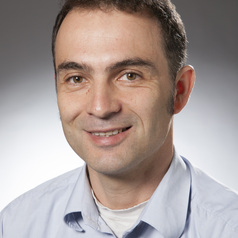
Clemens Altaner
Associate Professor in Wood Science, University of Canterbury
I am a trained wood scientist with a focus on molecular aspects of plant cell walls. My research includes fundamental and applied projects.
At the fundamental end I am working on a better understanding of the supramolecular architecture of plant cell walls in particular the structure of cellulose fibrils and how this structure determines macroscopic wood properties.
Most of my current external research funding is for applied research on wood quality. Particularly exciting is my involvement as science team leader of the NZDFI, which envisages New Zealand as a world-leader in breeding ground-durable eucalypts, and to be home to a valuable sustainable hardwood industry based on eucalypt forests, by 2050.
As a biomaterial, wood is highly variable. This variability poses significant problems to the wood processing industry. My work is trying to reduce the variability of wood and by that gaining efficiency in the wood processing industry. The major factor restricting the incorporation of wood properties into tree breeding programmes is the lack of fast but robust analytical techniques. Therefore development of such assessments is a key part of the research, many of which are only available in this field at our world-leading NZ School of Forestry.
Less ![]()
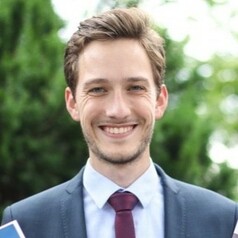
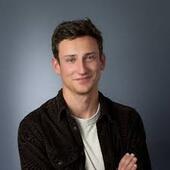
Clément Boyer
Doctorant à la Chaire Comptabilité Écologique, Université Paris Dauphine – PSL
Less ![]()
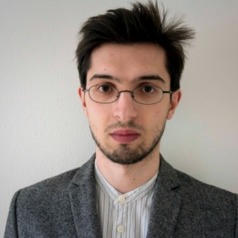
Clément Colin
Mon travail a pour objectif de prendre en compte le facteur humain dans les transitions/redirections écologiques. Il part du principe que le « saut technologique » présenté comme la solution au problème climatique, doit se doubler d’un « saut humain », au moins aussi important. Pour cela, je mène une thèse en ergonomie à l’Université de Lorraine sur la conception et l’évaluation des services partagés. En parallèle, je travaille comme ergonome spécialisé dans la prise en compte du facteur humain dans les systèmes low-tech et les stratégies de sobriété.
Mes recherches sont accessibles à cette adresse : https://cv.archives-ouvertes.fr/clement-colin.
Less ![]()
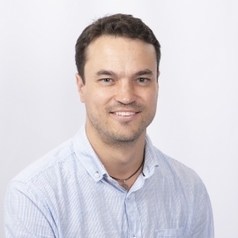
Clément Duvert
Senior Research Fellow, Charles Darwin University
I am a senior research fellow specialising in isotope hydrology and stream carbon cycling. I am interested in understanding the movement of water and associated solutes through tropical landscapes.
Less ![]()

Clément Le Ludec
Sociologie du numérique, Télécom Paris – Institut Mines-Télécom
I am a PhD researcher at Telecom Paris - Polytechnic Institute of Paris. I work on the HUSH project, exploring data supply chains in French-speaking African countries.
Less ![]()

Clément Lemineur
Doctorant en Sciences du Mouvement Humain, Université Côte d’Azur
Je suis doctorant à l'Université Côte d'Azur, en France. Mon principal domaine de recherche porte sur les déterminants musculaires et tendineux de la consommation énergétique associée à la locomotion.
La compréhension de ces déterminants permettrait de réduire cette consommation en question durant la marche, et ainsi limiter la fatigue développéé par les personnes âgées durant des tâches quotidiennes, impliquant de la marche. Elle permettrait également de réduire la consommation énergétique durant la course à pied en endurance, et ainsi améliorer la performance.
Less ![]()
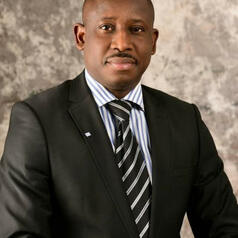
Clement Meseko
Veterinarian & Virologist, National Veterinary Research Institute, Vom, Jos
Dr. Clement Meseko is a Veterinary Research Officer at the National Veterinary Research Institute in Nigeria. He is a Doctor of Veterinary Medicine and a Doctor of Philosophy in Virology, obtaining his doctorates at Ahmadu Bello University, Zaria (1997) and University of Ibadan, Ibadan (2014) respectively.
Dr. Meseko has over 20 years collective experience in the pharmaceutical/nutrition Industry and infectious disease research and control, working in across both private and public sectors, as well as academia. Through the application of epidemiological, classical and molecular virological skills, he investigates viruses of both economic and public health importance to mitigate the impacts on people, animal and the environment, in the context of « One Health ».
Dr. Meseko’s scholarship and expertise is recognized at national and international levels, having consulted and executed projects for disease containment with WHO, FAO and OIE. His driving principle is the encapsulation of human, animal and environmental health as synergy in ONEHEALTH with profound impacts.
Less ![]()
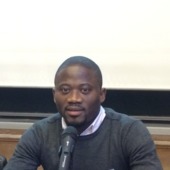
Clément Mougombili
Doctorant de Philosophie, Université de Rennes 1 - Université de Rennes
Less ![]()
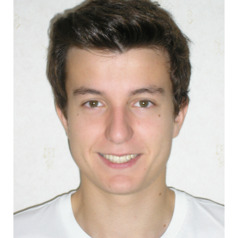
Clément Naveilhan
Doctorant en Sciences du Mouvement Humain, Université Côte d’Azur
Je suis doctorant en sciences du mouvement humain au Laboratoire de Motricité Humaine Expertise Sport Santé à Nice (France). Mes travaux de recherches en neurosciences cognitives s'intéressent aux déficits liés à l'âge dans les capacités de navigation spatiale. En utilisant la réalité virtuelle et l'EEG mobile, nous essayons de comprendre comment les déficits cognitifs et moteurs sous-tendent le déclin des capacités de navigation spatiale chez les personnes âgées.
Less ![]()
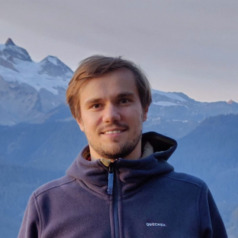
Clément Quintard
Postdoctoral fellow, Penninger Lab, University of British Columbia
I obtained my PhD in biotechnology at CEA Grenoble (France), where I worked on developing new organ-on-chip models. I am now a Postdoctoral Fellow in the Penninger Lab at UBC (Vancouver, Canada), aiming at the convergence of stem cell biology and bioengineering. I am working on using microfluidic systems to provide a more physiological micro-environment to biological models, including functional vasculature, controlled mechanical stimuli, and dynamic flows.
Less ![]()
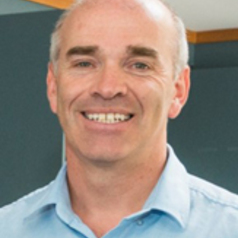
Cliff Law
Principal Scientist, National Institute for Water and Atmospheric Research (NIWA), University of Otago
Cliff is the Co-Director of the Research Centre for Oceanography, leader of NIWA's Ocean-Climate Interaction Programme and a Professor in the Department of Marine Chemistry, University of Otago. He is also a member of the Coastal People: Southern Skies collaboration that connects communities with world-leading, cross-discipline research to rebuild coastal ecosystems.
His research focuses on the interaction between the ocean and atmosphere; how biogeochemical cycling in the surface ocean influences atmospheric composition, and feedbacks between ocean biogeochemistry and climate. Specific research includes marine production and exchange of trace gases, controls of phytoplankton productivity and biodiversity and the impact of ocean acidification and climate variability on the structure and functioning of pelagic ecosystems. He was a formerly Chair and a Steering Committee member of International SOLAS and also the NZ delegate on the IMO Working Group on Ocean Fertilization for the London Convention. Awards include the 2011 Prime Ministers Science Team Award, the Hutchinson Medal by the Institute of Chemical Engineers in 2013, the University of Otago Science Division Research Group of the Year in 2015 and the ASLO John H. Martin Award in 2018.
Less ![]()

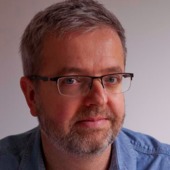
Clint Witchalls
Senior Health Editor
Before joining The Conversation, Clint worked as a freelance journalist covering health, science and technology for The Economist, Newsweek, New Scientist, The Guardian, The Observer, the Daily Mirror and the Independent. He also wrote a book about his year as a clinical trial "guinea pig" called Die Pille und Ich (Rowohlt), and co-authored a bestselling children's book on technology called Cool Stuff and How It Works (Dorling Kindersley).
Less ![]()
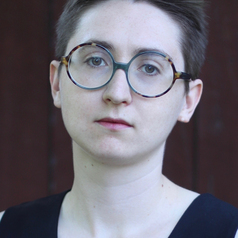
Clio Doyle
Lecturer in Early Modern Literature, Queen Mary University of London
Clio Doyle is a Lecturer in Early Modern Literature at Queen Mary University of London. She holds a BA in English Language and Literature from Merton College, Oxford, and a PhD in English and Renaissance Studies and an MPhil in Medieval Studies from Yale University. Her podcast, Studies in Taylor Swift, ran from 2021 to 2023. She works on stories about the invention of agriculture in late medieval and early modern literature and also on reading Taylor Swift as literature.
Less ![]()
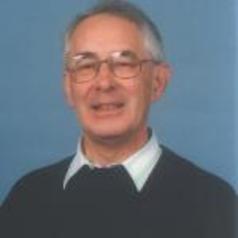
Clive Church
A graduate of Exeter University, Prof Church’s academic career started as a Teaching Assistant in University College, London and the School of Oriental and African Studies. From 1963-65 he was Junior Lecturer in Modern History in Trinity College, Dublin. From there he went to the University of Lancaster as Lecturer in French History, rising to be Senior Lecturer in European Studies in 1975. Transferring to Kent in 1981 he taught a variety of historical and political courses, including Swiss Studies, first for the School of Languages and then in the School of Politics and International Relations. Promoted Reader in 1988 and Professor in 1992, he was awarded a Jean Monnet Chair in European Integration in 1995. He was the first Director of the Kent Centre for Europe, a Jean Monnet Centre of Excellence, and has been an Emeritus Professor since 2003.
Less ![]()
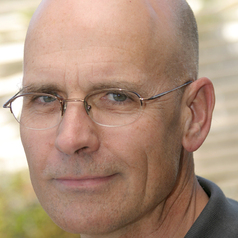
Clive Hamilton
Professor of Public Ethics, Centre For Applied Philosophy & Public Ethics (CAPPE), Charles Sturt University
Until early 2008 Clive Hamilton was the Executive Director of The Australia Institute, Australia’s leading progressive think tank, which he founded in 1993. Prior to that he taught at the ANU and was a federal public servant. He has held a number of visiting academic positions, including at Sciences Po, Yale University and the University of Oxford. He is currently a member of the Climate Change Authority. In 2009 he was the Australian Greens candidate in the Higgins by-election.
Clive is the author of a number of best-selling books, including Growth Fetish, Affluenza (with Richard Denniss), and Requiem for a Species: Why we resist the truth about climate change. His most recent book is Earthmasters: The dawn of the age of climate engineering (Yale University Press, 2013).
Less ![]()
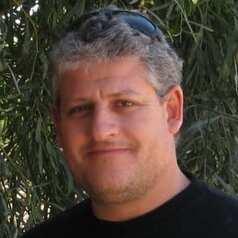
Clive Lipchin
Adjunct Professor of Environmental Studies, Tel Aviv University
Dr. Lipchin currently serves as director of the Arava Institute for Environmental Studies' Center for Transboundary Water Management where he oversees research and development projects, workshops and conferences that focus on transboundary water and environmental problems facing Israel, Jordan and the Palestinian Authority.
His specialty is in water resources management and policy. Clive also consults for a number of international water agencies such as the World Bank, EU, UNDP and USAID and has been involved most recently with the European Union's Water Initiative project for the Mediterranean region and the USAID Conflict Management and Mitigation (CMM) program. He also serves as the Israeli partner for the USDA funded project – CONSERVE, and is well integrated in the Israeli water tech sector.
Dr. Lipchin has published and presented widely on the topic of transboundary water management in the Middle East and has served as senior editor on two books: “Integrated Water Resources Management in the Middle East”, and “The Jordan River and Dead Sea Basin: Cooperation amid Conflict”. Since the online publication on Oct 9th , 2009 of “The Jordan River and Dead Sea Basin: Cooperation Amid Conflict” there has been a total of 2,440 chapter downloads of the book making it one of the top 50% most downloaded eBooks in the Springer eBook Collection of 2012.
Less ![]()
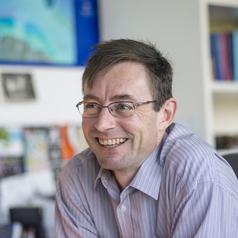
Clive Schofield
Professor, Australian National Centre for Ocean Resources and Security (ANCORS), University of Wollongong
Clive Schofield is Professor with the Australian Centre for Ocean Resources and Security (ANCORS), University of Wollongong (UOW), Australia. He holds a PhD in Geography from the University of Durham and an LLM in international law from the University of British Columbia (UBC). His research interests relate to international maritime boundary delimitation and geo-technical issues related to the law of the sea on which he has published over 200 scholarly publications. Clive is an Observer on the Advisory Board on the Law of the Sea (ABLOS) and is a member of the International Law Association’s Committee on International Law and Sea Level Rise. He has also been involved in the peaceful settlement of boundary and territory disputes by providing advice to governments and in dispute settlement cases before international courts and tribunals.
Less ![]()
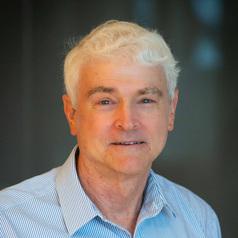
Clive Thompson
Research Fellow, Labour, Development & Governance Unit, University of Cape Town
BA (Hons), University of Stellenbosch (1977); LLB, University of Cape Town (1980)
Founding Director of the Labour Law Unit (now the Labour, Development & Governance Unit, University of Cape Town) (1987)
Associate Professor of Commercial Law, University of Cape Town (1991-2000)
Adjunct Professor, Law School, University of Cape Town (2001-2012)
Director of the School for Advanced Legal Studies, University of Cape Town (1992)
Senior Commissioner of the Commission for Conciliation, Mediation and Arbitration, South Africa (1996-99)
Editor of the South African Industrial Law Journal (to 1999)
Attorney of the High Court of South Africa
Solicitor of the Supreme Court of New South Wales
Arbitrator of the NSW Compensation Commission (2002-2006)
Senior Fellow at the Law School of the University of New South Wales ( 20012-19)
Accredited Mediator under the National Mediation Accreditation System (Australia) (ongoing)
Director of CoSolve (www.cosolve.com.au) (2000-)
Consultant to the International Labour Organisation (ongoing)
Less ![]()
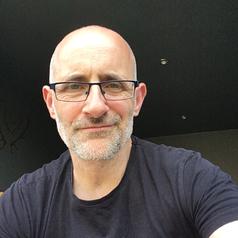
Clive Trueman
Professor of Marine Biology, University of Southampton
I am a professor of Marine Biology at the University of Southampton - I explore how animals interact with their environment by reading clues coded in the chemistry of their tissues. I am especially interested in how temperature influences the energetics of fishes and other animals, and how this might help us predict some consequences of global climate change.
Less ![]()
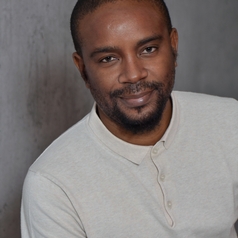
Clive Vinti
Associate Professor of Law, University of the Witwatersrand
I am an expert on international trade, specialising in trade remedies, industrial and trade policy and sustainable development.
Less ![]()
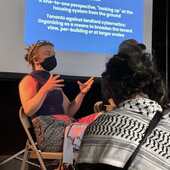
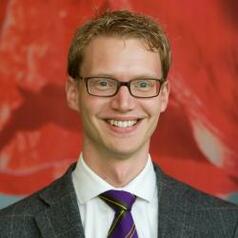
Coen Rigtering
Assistant Professor in Strategy and Organization, Utrecht University
Coen Rigtering works as an Assistant Professor in Strategy and Organization at the Utrecht University School of Economics (U.S.E.). He holds Master degree (cum laude) in Policy, Communication and Organization from the VU University in Amsterdam and a Ph.D. in Corporate Entrepreneurship from the Utrecht University. His primary research interests are in the field of corporate entrepreneurship, organizational behavior, and strategic management. His work is published in several academic journals such as: Journal of Business Venturing, Academy of Management Discoveries, British Journal of Management, and Review of Managerial Science.
Less ![]()
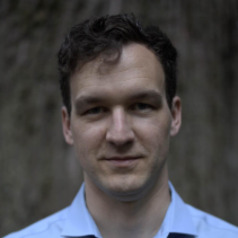
Cole Mathis
Assistant Professor of Complex Adaptive Systems, Arizona State University
Cole Mathis is an assistant professor in the School of Complex Adaptive Systems and in the Biodesign Center for Biocomputation, Security and Society. He is a physicist and astrobiologist who studies the origin and nature of life on Earth as well as the possibility of life beyond our planet. The focus of his research is connecting theoretical concepts with experiments and empirical validation, with the goal of helping create de novo life forms in the lab.
Less ![]()
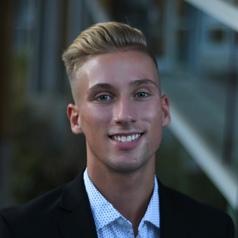
Cole J. Kennedy
PhD Student, Department of Psychology, University of Victoria
Cole J. Kennedy is a Doctoral student of Clinical Neuropsychology in the Department of Psychology at the University of Victoria. He is a Student Senator, a member of the CORTEX lab, a Student Affiliate of the Institute on Aging & Lifelong Health, and is the Graduate Student Research Lead for the BC Consensus on Brain Injury. Additionally, Cole is the Founder, Lead Researcher & Project Manager of DECISION–MAP (Database of Evidence Concerning Interventions Supporting the Intersections Of Neurotrauma–Mental health, & Addictions Problems). Inspired by his clinical experiences supporting survivors of brain injury in the community, Cole’s previous research examined the clinical sequalae and management of sport-related concussion in elite athletes, whereas his more recent research aims to better the lives of those struggling with concurrent acquired brain injury, psychiatric disorders, and substance use/addictions through a variety of community-engaged and patient-oriented approaches.
Less ![]()
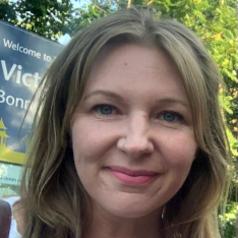
Colette Paul
Senior Lecturer, Creative Writing, Anglia Ruskin University
After studying English and Politics, Colette completed a MLitt in Creative Writing, and then a PhD, funded by a Carnegie Scholarship. During this time, she worked as a postgraduate tutor in English Literature for the University of Glasgow, teaching a survey course from Milton to Angela Carter.
After she finished her PhD, she taught Creative Writing at Glasgow University (MA level) and at Strathclyde University (BA level) and also for Visibility Scotland. She has worked at ARU since 2008 where she teaches mainly on the short story, and supervises students at all levels.
Colette has published in many literary magazines and journals, and two of her stories were recently included in Victoria Hislop’s anthology, The Story: 100 Great Stories of Love & Loss.
Research interests
Short fiction, theory and practice
Prose fiction
Narrative theory
Contemporary women’s writing
Less ![]()
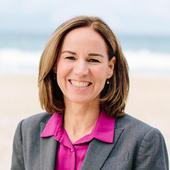
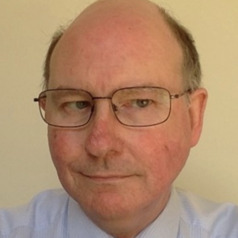
Colin Axon
Senior Lecturer in the Institute of Energy Futures, Brunel University London
I am an engineering scientist interested in the use of energy in the urban environment and the limits to natural resources. My main areas of interest are in energy security, risk, sustainability, transport, electricity networks, and resource efficiency. I use techniques and methods including the application of robust methods for metrics and indicators, and data mining and analytics.I have published more than 80 reviewed articles and technical reports across mechanical, chemical, civil, environmental, and electrical engineering.
Less ![]()
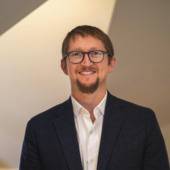
Colin Burnett
Associate Professor of Film and Media Studies, Washington University in St. Louis
Less ![]()

Colin Campbell-Hunt
Emeritus Professor in Business, University of Otago
I thoroughly enjoyed a 40 year career as a business school academic, both at Otago and before that at Victoria in Wellington. My research and teaching never strayed far from questions of competition between firms and the ways in which firms might possibly sustain an advantage over their competitors. I am greatly privileged to have led a large 10-year funded research programme into the competitiveness of New Zealand firms in global markets.
In later years, I also became interested in the application of complex systems theory to organisations, and this has given me a perspective on the enormous challenges presented to New Zealand and the world by climate change.
Less ![]()
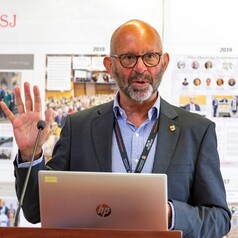
Colin Diamond
Professor of Educational Leadership, University of Birmingham
Colin has worked in education leadership roles for over 40 years. He began teaching in London where he was also a youth worker. He has been privileged to be appointed to senior posts including secondary headship, local authority adviser for SEND, director of education and director of children's services (twice). He has worked for the Department for Education leading on quality assurance for the academies and free schools programmes. He was also an Ofsted inspector. He was Deputy Education Commissioner in Birmingham working directly to the Secretary of State for Education.
In 2018 he was invited to set up the Education Leadership Academy at the University of Birmingham. It is flourishing and has worked with both local leaders, in line with the university's civic mission to serve the community, and leaders from over 40 nations. He teaches in Birmingham and UoB Dubai.
He edited and curated The Birmingham Book: lessons in urban education leadership and policy from the Trojan Horse affair (Crownhouse 2023) His research focuses on urban education, intersectional issues and the role of inspections in the English education system. He writes op-ed pieces for Schools Week, TES and the Education Guardian.
Colin is a lifelong Liverpool FC supporter and gets to Anfield whenever he can.
Less ![]()
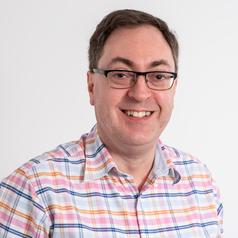
Colin Foster
Reader in Mathematics Education, Loughborough University
I am a Reader in Mathematics Education in the Department of Mathematics Education at Loughborough University, England.
My research interests in mathematics education focus on the learning and teaching of mathematics in ways that support students’ conceptual understanding. I am particularly interested in the design and use of rich tasks in the mathematics classroom, and in finding ways to enable students to develop the necessary fluency in mathematical processes to support them in solving mathematical problems.
I am Director of the Loughborough University Mathematics Education Network and leading the design of completely free, research-informed teaching resources for school mathematics.
Less ![]()
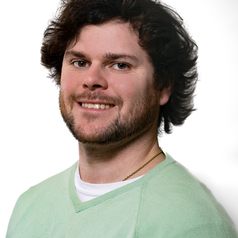
Colin Kohlhaas
Doctoral Candidate, History, Binghamton University, State University of New York
I specialize in United States history with a focus on ethnicity, labor, and masculinity in the twentieth century. My dissertation, “‘We Intend to Run This District': Irish American Violence in Chicago, 1880-1922” analyzes Irish American working-class violence in Chicago during the late-nineteenth and early-twentieth centuries.
Less ![]()
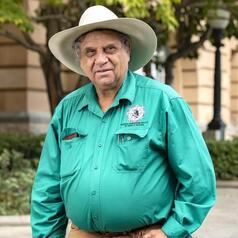
- Market Data





















